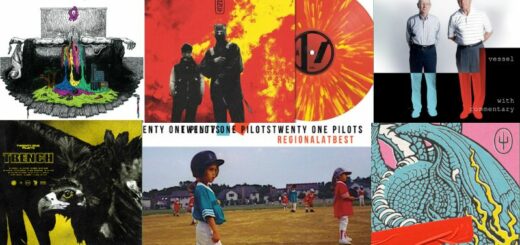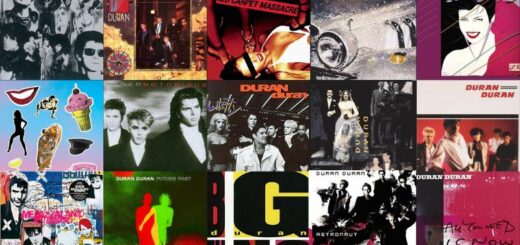The List of Bob Marley Albums in Order of Release
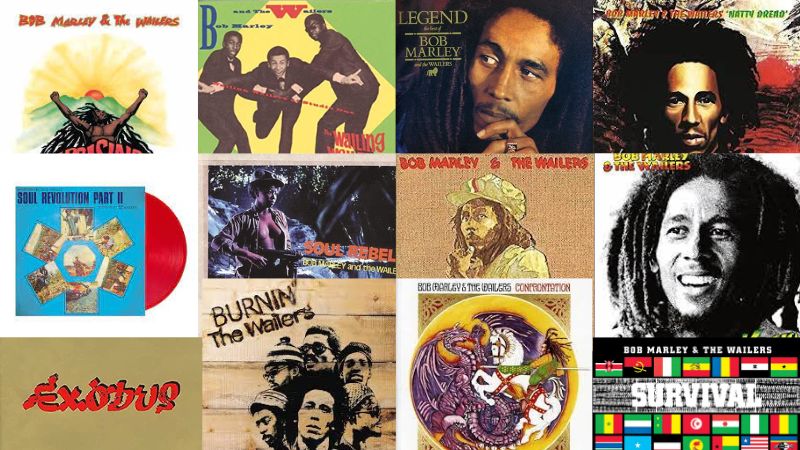
Bob Marley Albums in Order: From the sun-soaked rhythms of “The Wailing Wailers” to the soul-stirring melodies of “Exodus,” Robert Nesta Marley OM’s musical journey transcended genres and generations, leaving an indelible mark on the global cultural landscape.
Robert Nesta Marley OM, born on February 6, 1945, and passing away on May 11, 1981, left an indelible mark on the world of music and popular culture. As a Jamaican reggae singer, guitarist, and songwriter, Marley is celebrated as one of the genre’s pioneers, seamlessly blending elements of reggae, ska, and rocksteady into his music. His distinctive vocal style and profound songwriting prowess made him a global icon, elevating the visibility of Jamaican music worldwide.
Beyond his musical contributions, Marley’s advocacy for democratic social reforms, support for the legalization of cannabis, and promotion of Pan-Africanism underscored his status as a cultural and political figure. Despite surviving an assassination attempt in 1976, Marley continued to thrive artistically, releasing critically acclaimed albums such as “Exodus” (1977). His untimely death in 1981 did not diminish his impact; posthumously, Marley’s influence only grew, solidifying his place as one of the best-selling music artists of all time and earning him numerous accolades, including induction into the Rock and Roll Hall of Fame and a star on the Hollywood Walk of Fame. So, if you are a die heart fan of Bob Marley Albums then check out here we have list of Bob Marley albums in order of release so far.
All Bob Marley Albums Available on: Apple Music
How many albums does Bob Marley have?
The discography of Bob Marley have released 13 Studio albums, 6 Live albums, 38 Compilation albums, 133 Singles, 1 Soundtrack albums, 10 Remix albums, 11 Box sets.
All Bob Marley Albums in Order: Check Out The List of Bob Marley Albums in Order of Release Here!
Here is the list of Bob Marley Album in Order of Release Date
- The Wailing Wailers — 1965
- Soul Rebels — December 1970
- Soul Revolution Part II — 1971
- The Best of the Wailers — May 1970
- Catch a Fire — 13 April 1973
- Burnin’ — 19 October 1973
- Natty Dread — 25 October 1974
- Rastaman Vibration — 30 April 1976
- Exodus — 3 June 1977
- Kaya — 23 March 1978
- Survival — 2 October 1979
- Uprising — 10 June 1980
- Confrontation — 23 May 1983
All Bob Marley Albums List in Order
1. The Wailing Wailers (1965)
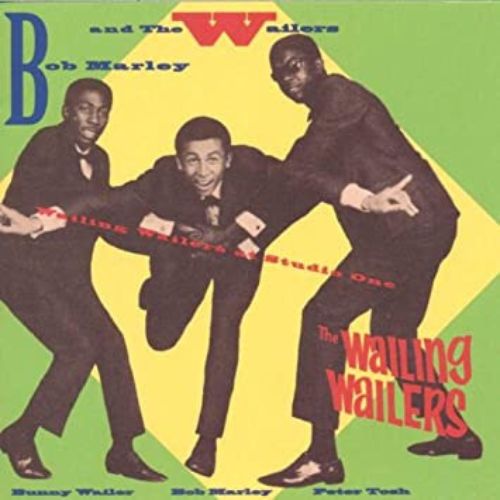
Tracks
- (I’m Gonna) Put It On
- I Need You
- Lonesome Feeling
- What’s New Pussycat?
- One Love
- When the Well Runs Dry
- Ten Commandments of Love
- Rude Boy
- It Hurts to Be Alone
- Love and Affection
- I’m Still Waiting
- Simmer Down
“The Wailing Wailers,” the debut studio album by the Wailers, later recognized as Bob Marley and the Wailers, marked a seminal moment in reggae history. Released in 1965 on the Studio One label, it compiled recordings from 1964-1965 by Bunny Wailer, Bob Marley, and Peter Tosh, accompanied by The Soul Brothers. Although not a conventional studio album, it showcased the group’s early talent and Clement Coxsone Dodd’s selection of their best work. Despite subsequent overdubs to align with changing musical trends, the original essence was restored with a CD release in May 2016, preserving its significance in reggae’s evolution.
2. Soul Rebels (1970)
Tracks
- Soul Rebel
- Try Me
- It’s Alright
- No Sympathy
- My Cup
- Soul Almighty
- Rebel’s Hop
- Corner Stone
- 400 Years
- No Water
- Reaction
- My Sympathy
“Soul Rebels” stands as the second studio album by the Wailers, marking their inaugural release beyond Jamaica’s shores. Recorded under the guidance of producer Lee “Scratch” Perry between August and November 1970 at Randy’s recording studio in Kingston, Jamaica, the album boasts a minimalist production style. Released initially by Trojan Records in the UK in December 1970, “Soul Rebels” has seen numerous reissues across various labels. Perry’s signature sparse and haunting production, characterized by guitar, bass, drums, electronic organs, and vocals sans horns or ornate embellishments, distinguishes the album, solidifying its place in reggae history.
3. Soul Revolution Part II (1971)
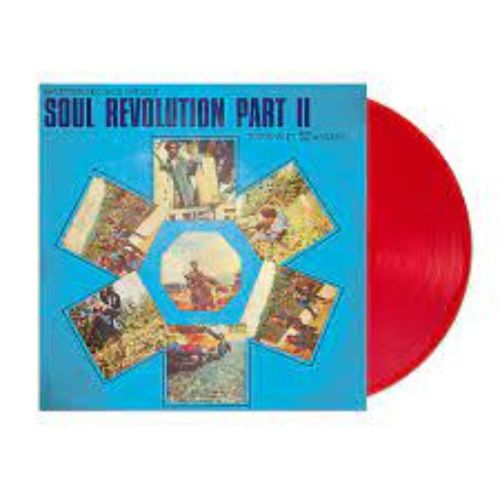
Tracks
- Keep On Moving
- Don’t Rock My Boat
- Put It On
- Fussing and Fighting
- Duppy Conqueror V/4
- Memphis
- Riding High
- Kaya
- African Herbman
- Stand Alone
- Sun Is Shining
- Brain Washing
“Soul Revolution Part II” (also referred to as “Soul Revolution”) marks the third album by Bob Marley and the Wailers, produced under the guidance of Lee “Scratch” Perry. While the album cover consistently bears the title “Soul Revolution Part II,” discrepancies arise with certain releases displaying “Soul Revolution” on the label, leading to ambiguity over its intended name. In 1988, a dub rendition sans vocals titled “Soul Revolution Part II Dub” was released alongside the original. Subsequently, the album was reissued in 1973 with additional content under the title “African Herbsman,” further cementing Marley’s legacy in reggae music.
4. The Best of the Wailers (1971)
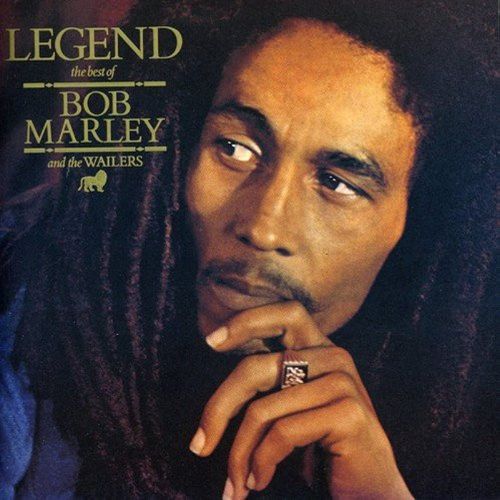
Tracks
- Soul Shakedown Party
- Stop the Train
- Caution
- Soul Captives
- Go Tell It on the Mountain
- Can’t You See
- Soon Come
- Cheer Up
- Back Out
- Do It Twice
“The Best of the Wailers,” released in August 1971, stands as the fourth studio album by the Wailers, showcasing their evolving sound prior to their collaboration with Lee Perry. Despite its title, it’s not a compilation but rather a collection of tracks recorded in May 1970. Produced by Leslie Kong, the album marked a poignant moment as Kong tragically passed away from a heart attack just a week after its release at the age of 37. This album not only captures the essence of the Wailers’ early work but also serves as a testament to Kong’s contribution to their musical journey.
5. Catch a Fire (1973)
Tracks
- Concrete Jungle
- Slave Driver
- 400 Years
- Stop That Train
- Baby We’ve Got a Date (Rock It Baby)
- Stir It Up
- Kinky Reggae
- No More Trouble
- Midnight Ravers
“Catch a Fire,” the fifth studio album by The Wailers (aka Bob Marley and the Wailers), marked a pivotal moment in reggae history upon its release in April 1973. As their debut under Island Records, it emerged amidst contractual disputes and financial struggles, yet its impact transcended adversity. Featuring nine tracks, predominantly written by Marley and Tosh, the album’s collective songwriting process exemplified the band’s collaborative ethos. Despite limited initial success, the subsequent Catch a Fire Tour ignited international interest. Critically acclaimed and ranked among Rolling Stone’s top albums, its enduring legacy underscores its significance in shaping reggae music.
6. Burnin’ (1973)
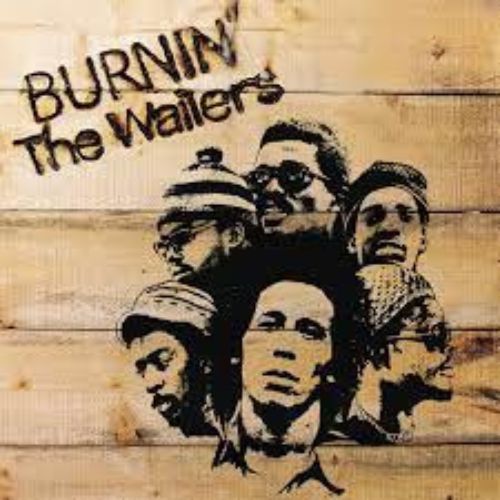
Tracks
- Get Up, Stand Up
- Hallelujah Time
- I Shot the Sheriff
- Burnin’ and Lootin
- Put It On
- Small Axe
- Pass It On
- Duppy Conqueror
- One Foundation
- Rasta Man Chant
“Burnin'” stands as the sixth album by the Jamaican reggae group, the Wailers, also known as Bob Marley and the Wailers, hitting the shelves in October 1973. Penned by all three members, it was recorded and produced by the Wailers in Jamaica, with additional work completed during the Catch a Fire tour in London. Featuring the iconic track “I Shot the Sheriff,” it marked the culmination of the group’s collaborative efforts before Marley, Peter Tosh, and Bunny Wailer embarked on solo endeavors. The album achieved both commercial and critical acclaim in the United States, earning Gold certification and a place in the National Recording Registry for its historical and cultural significance.
7. Natty Dread (1974)
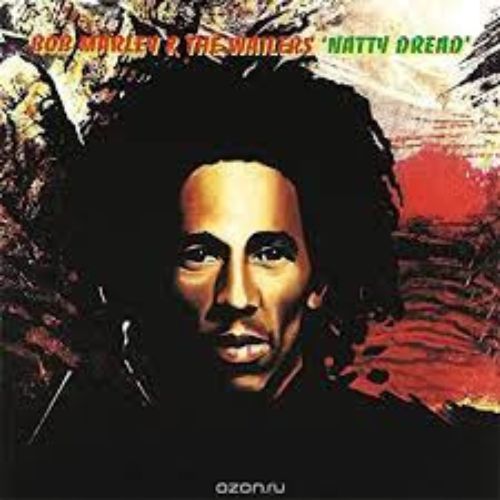
Tracks
- Lively Up Yourself
- No Woman, No Cry
- Them Belly Full (But We Hungry)
- Rebel Music (3 O’Clock Roadblock)
- So Jah Seh
- Natty Dread
- Bend Down Low
- Talkin’ Blues
- Revolution
Natty Dread is the seventh album by Bob Marley and the Wailers, released in 1974. Previously Marley had recorded with Peter Tosh and Bunny Wailer as the Wailers, and this was his first record without them.[3] Natty Dread was most popularly received in the UK, where it peaked at No. 43 and sold in excess of 100,000 copies, making it a gold album. Over time it gained popularity in other parts of the world, and in 2003 it was ranked No. 181 on Rolling Stone magazine’s list of the 500 greatest albums of all time.
8. Rastaman Vibration (1976)

Tracks
- Positive Vibration
- Roots, Rock, Reggae
- Johnny Was
- Cry to Me
- Want More
- Crazy Baldhead
- Who the Cap Fit
- Night Shift
- War
- Rat Race
Released in April 1976, “Rastaman Vibration” stands as the eighth studio album by the renowned Jamaican reggae band, Bob Marley and the Wailers. This iconic album showcased Marley’s evolution as an artist, blending his signature reggae sound with elements of blues, soul, and rock. Notably, it marked Marley’s international breakthrough with the hit single “No Woman, No Cry.” Following its release, “Rastaman Vibration” reached the Top 50 of the Billboard Soul Charts in the United States, solidifying Marley’s status as a global musical phenomenon. The album remains a cornerstone of Marley’s legacy, revered for its spiritual resonance and musical innovation.
9. Exodus (1977)
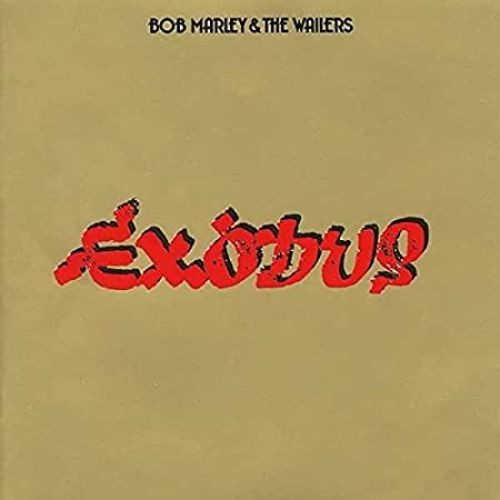
Tracks
- Natural Mystic
- So Much Things to Say
- Guiltiness
- The Heathen
- Exodus
- Jamming
- Waiting in Vain
- Turn Your Lights Down Low
- Three Little Birds
- One Love/People Get Ready
Exodus, the ninth studio album by Bob Marley and the Wailers, released in June 1977 via Island Records, marked a pivotal moment in reggae history. Departing from cryptic storytelling, Exodus delves into themes of change, religious politics, and sexuality. Recorded after an assassination attempt on Marley’s life, the album reflects resilience amidst adversity. With its laid-back production and pulsating basslines, Exodus achieved critical and commercial success, propelling Marley to international stardom. It garnered gold certifications in the US, UK, and Canada, cementing Marley’s legacy. Remastered for its 40th anniversary in 2017, Exodus remains a cornerstone of Marley’s discography, featuring prominently on his greatest hits compilation, Legend.
10. Kaya (1978)
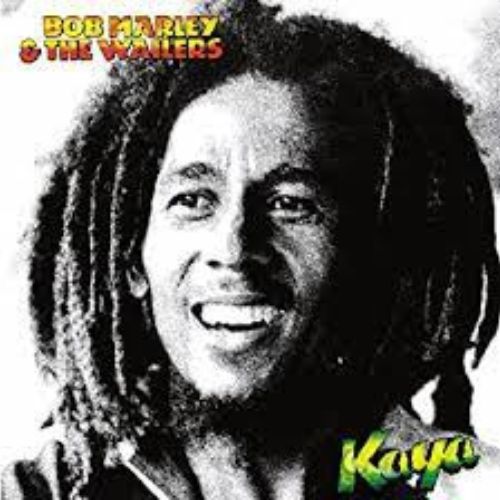
Tracks
- Easy Skanking
- Kaya
- Is This Love
- Sun Is Shining
- Satisfy My Soul
- She’s Gone
- Misty Morning
- Crisis
- Running Away
- Time Will Tell
Released in 1978, “Kaya” marks the tenth studio album by Bob Marley and the Wailers, recorded alongside their iconic “Exodus” album in 1977. Characterized by a relaxed, laid-back sound, “Kaya” diverges from the militant quality of previous works, drawing criticism for its perceived softness both lyrically and musically. Centered on themes of love and marijuana, the album coincided with Marley’s return to Jamaica from London, celebrated at the One Love Peace Concert. Notable for featuring revamped versions of tracks from their earlier albums, “Kaya” includes hits like “Is This Love” and “Satisfy My Soul,” ultimately reaching the top five on the UK album charts.
11. Survival (1979)
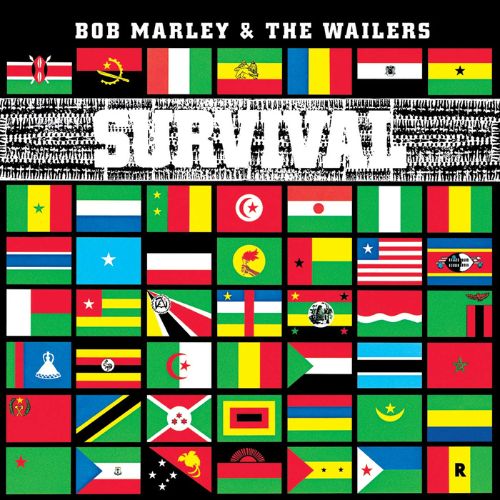
Tracks
- So Much Trouble in the World
- Zimbabwe
- Top Rankin
- Babylon System
- Survival
- Africa Unite
- One Dropg
- Ride Natty Ride
- Ambush in the Niht
- Wake Up and Live
“Survival,” Bob Marley and the Wailers’ eleventh studio album released in 1979, carries a militant theme, responding to critiques of Marley’s prior release, “Kaya.” With tracks like “Africa Unite” and “Zimbabwe,” Marley champions Pan-African solidarity and celebrates Zimbabwe’s independence. Originally titled “Black Survival” to emphasize African unity, the name was shortened to avoid misinterpretation. The album faced censorship in apartheid-era South Africa. “Survival” embodies Marley’s unwavering commitment to social justice and unity, reflecting his enduring influence as a musical and cultural icon.
12. Uprising (1980)
Tracks
- Coming in from the Cold
- Real Situation
- Bad Card
- We and Dem
- Work
- Zion Train
- Pimper’s Paradise
- Could You Be Loved
- Forever Loving Jah
- Redemption Song
“Uprising,” Bob Marley and the Wailers’ twelfth studio album and Marley’s final release before his passing, epitomizes his unwavering commitment to his Rastafarian faith. Launched on June 10, 1980, the album resonates with spiritual depth, featuring themes central to Marley’s beliefs. Its standout track, “Redemption Song,” delivered acoustically, serves as a poignant culmination of Marley’s spiritual journey. While charting modestly in the US, peaking at 41 on the Billboard Black Albums chart and 45 on the Pop Albums chart, “Uprising” found greater success in the UK, securing a top ten placement. The album’s single, “Could You Be Loved,” also garnered significant acclaim, reaching the top five on the UK singles charts.
13. Confrontation (1983)
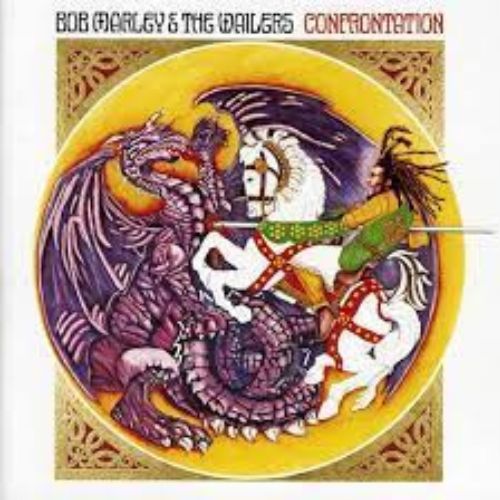
Tracks
- Chant Down Babylon
- Buffalo Soldier
- Jump Nyabinghi
- Mix Up, Mix Up
- Give Thanks and Praises
- Blackman Redemption
- Trench Town
- Stiff Necked Fools
- I Know
- Rastaman Live Up!
Confrontation, Bob Marley & the Wailers’ thirteenth and final studio album, emerged posthumously in May 1983, following Marley’s passing two years prior. This compilation of songs, drawn from unreleased material and singles, showcases Marley’s enduring legacy. Notably, tracks like “Jump Nyabinghi” feature added vocals from the I-Threes, enhancing the album’s depth. Iconic songs like “Buffalo Soldier” resonate with Marley’s timeless message. The album’s cover, portraying Marley as Saint George slaying Babylon’s dragon, reflects his Rastafarian beliefs and draws parallels to Ethiopian history. Inside, artwork depicting the Battle of Adowa adds further layers to Marley’s cultural and historical significance.
Thanks for Visit!



